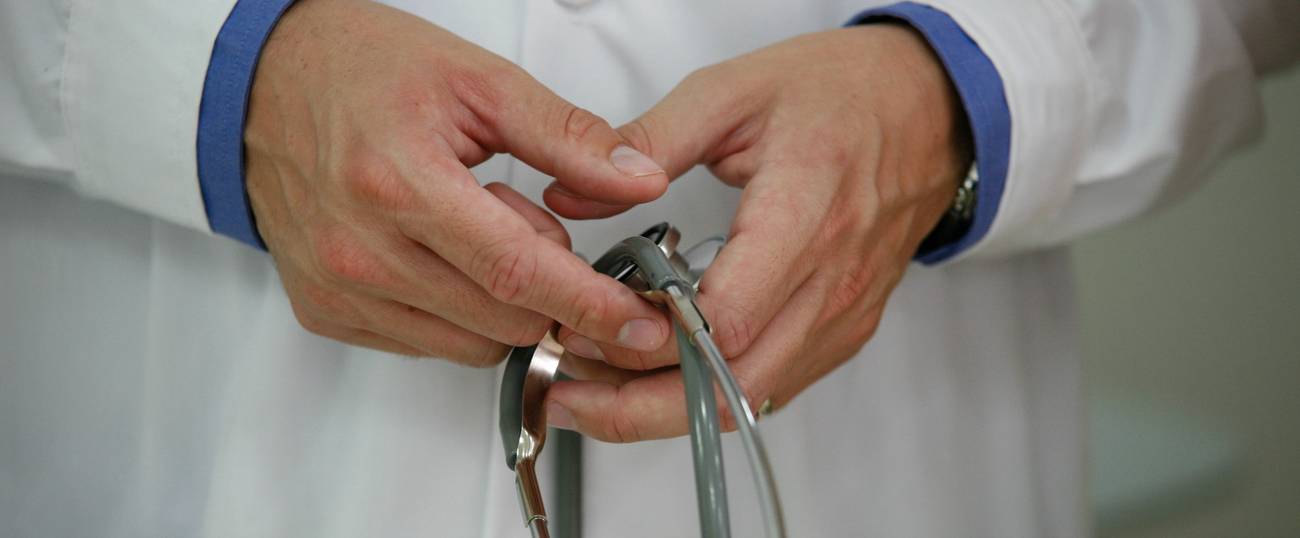House Call
The first time I tended to an ailing patient in her home, it was a healing experience for both of us—in part because of a shared prayer




When my rabbi spoke about the mitzvah of returning lost objects, he said that it doesn’t just mean returning something that is lost, but restoring the soul of the person who lost it: “Bikur cholim [visiting the sick] also restores the soul because when someone is sick, it’s their soul they have lost.”
As a physician, I don’t usually visit the sick; they generally visit me. But not long ago, I made my first house call.
Felicia, a 26-year-old African-American graduate student, had been experiencing jerky motions of her limbs and loss of balance. She started having problems four years ago, but last May she fell on her way to the subway, and ended up spending the night in the hospital.
Nothing was found, and even a trip to the neurologist and the rheumatologist yielded no further information—only what she did not have: It’s not multiple sclerosis, they told her.
Like lots of people whose conditions don’t match up to any known disease, she landed in my office; I’m a holistic physician. After hearing her story, I surmised that she suffers from auto-immunity, a condition where the immune system’s wrath is mistakenly directed against oneself instead of a foreign invader. We decided on a treatment that addresses the wayward immune system and sets it on a more appropriate path.
We set a date for her first treatment, an injection, and I asked her to prepare for it with a week-long course of medication and a restricted diet.
I knew she was terrified when she suggested a whole-body MRI to find out “what’s really wrong with me.” If only it were so simple, like in the old Star Trek where you just reported to “sick bay,” and kindly old Bones scanned your body with one nifty device and deployed another to heal you.
I tried to reassure her and remind her of our treatment plan. But she left messages that became more urgent and crazed.
The morning of our appointment, she asked, “Do you make house calls?”
Severe nausea and muscle spasms had arrived with her menstrual period, and she felt too sick to venture out.
I hated to see her miss the urgently needed treatment, especially after all that preparation. I don’t prescribe drugs easily, and now that she’d begun a course of therapy, I wanted to see it through. I decided to make the house call.
I found Felicia in her apartment, sitting in a small, cluttered room, looking thin and gray. The room was dominated by a mammoth flat screen TV. There was a worn old couch and a window that yielded very little light, blocked by heavy curtains. When I went to open them, I found myself staring down an air shaft.
Felicia had seated herself on the couch, and now I sat down beside her. Eager to accomplish my mission, I took the syringe out of its plastic container and reached for her arm.
But Felicia cringed and drew away. “Would it be OK if I pray first?” she asked. No one had ever suggested that before, but then again no one had ever requested a house call either.
“Of course,” I said, feeling chastised, “by all means.” She clasped her hands together and gazing up to the heavens, intoned a heartfelt prayer: “May God Almighty grant me a complete healing and restore me to myself.”
“Amen,” we both said.
There was an awkward silence, as if we were waiting for a miracle. Then, I reached for her arm. As I inserted the needle, I found myself silently saying a prayer of my own. I had a feeling that she suffered from Lyme disease, and I knew this is not an easy illness to face. More than any other malady, it steals your soul, changes your entire being. Calm people turn anxious and clear-headed people are beset with brain fog.
I want so much to help Felicia, to see her return to her old self, to leave this strange alternative universe of anxiety, nausea, and joint pain, of muscles twitching and limbs not behaving. I want her back on the crowded, noisy subway commuting to grad school, sitting through seminars, writing papers, planning her thesis.
My rabbi said that visiting the sick restores the soul—but whose soul? I may have gone to Felicia’s home to help her recover, even to restore her soul, you might say, though I certainly didn’t think of it in those lofty terms. But after hearing her heartfelt prayer, something shifted in me. “Thank you, Doctor,” she told me when I left; but I knew the thank you was mostly mine.
Marjorie Ordene practices holistic medicine in Brooklyn.